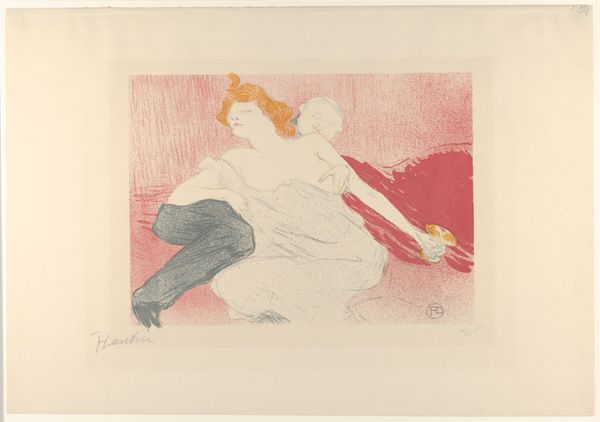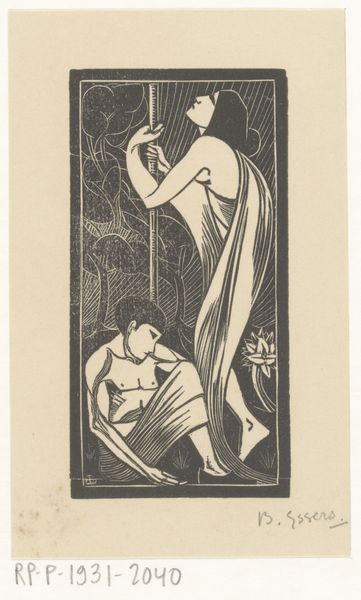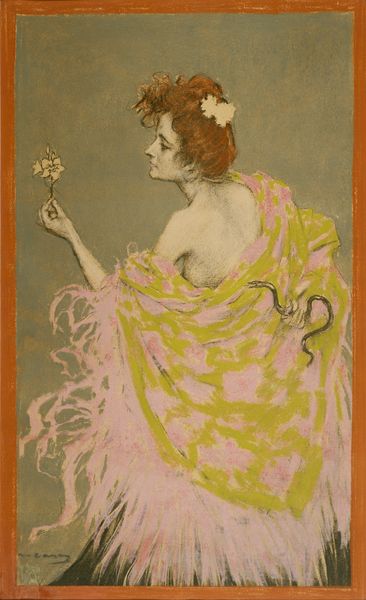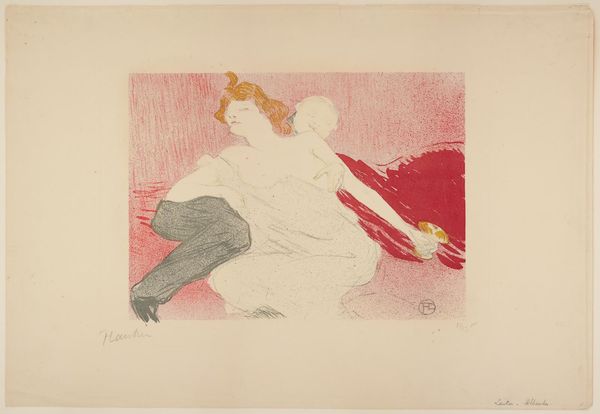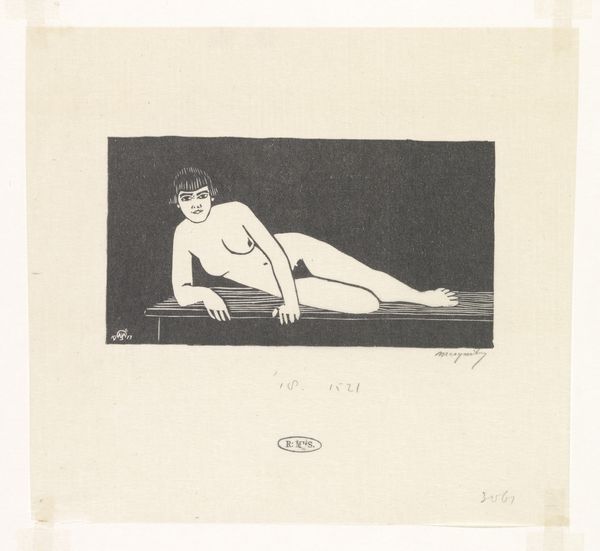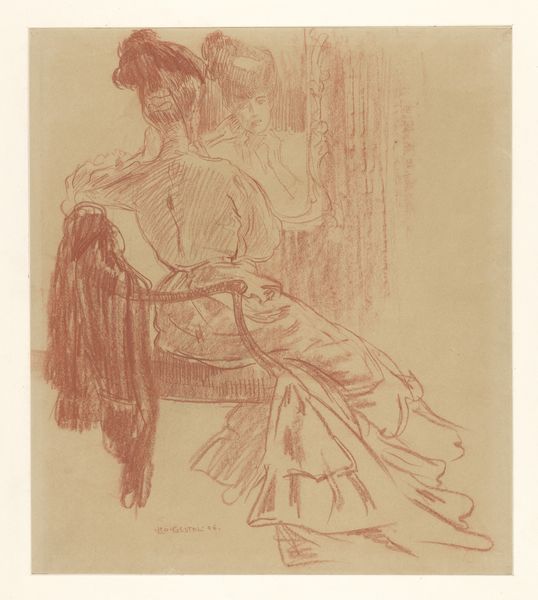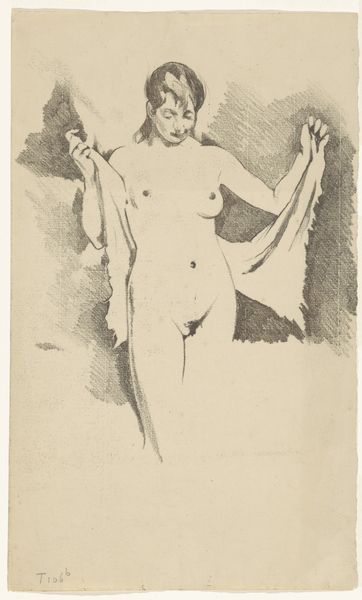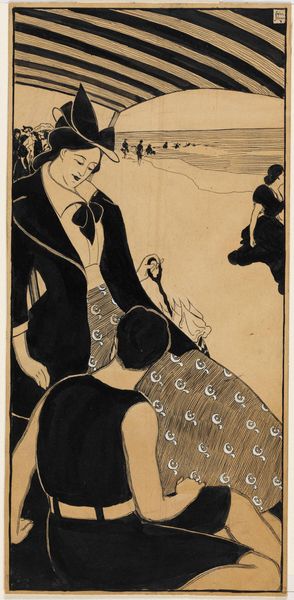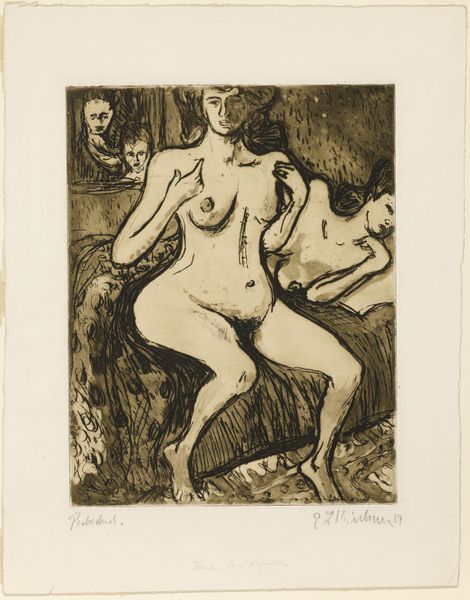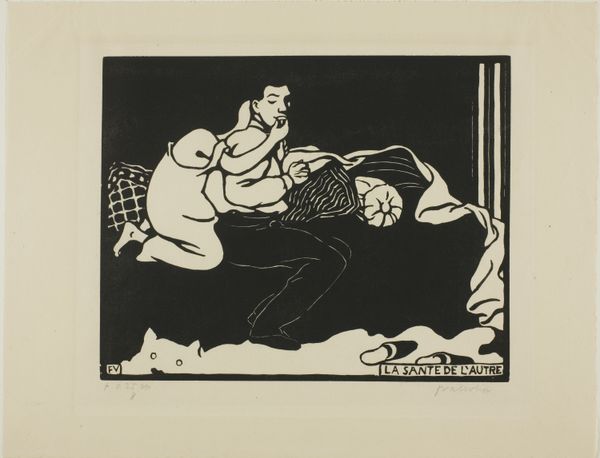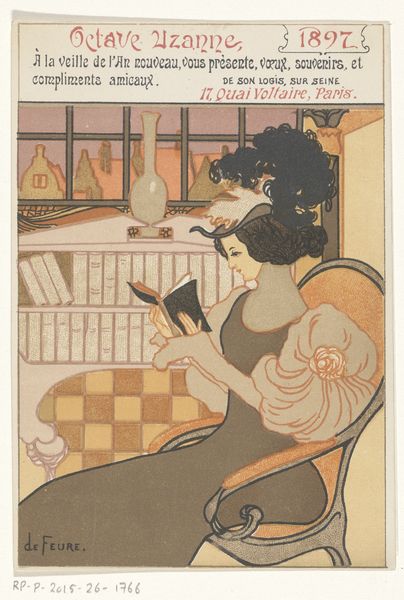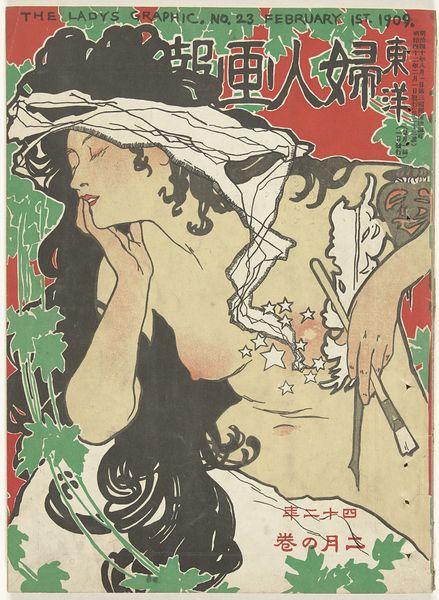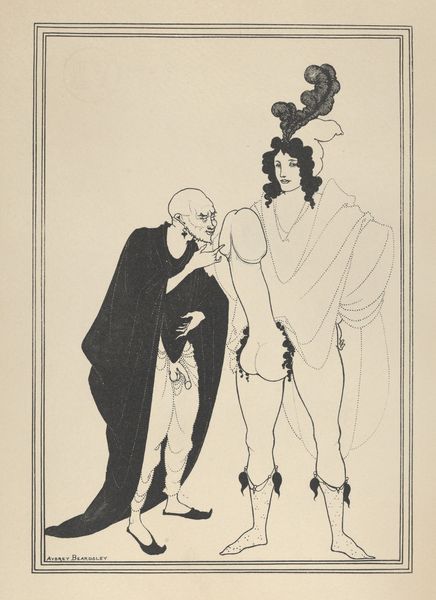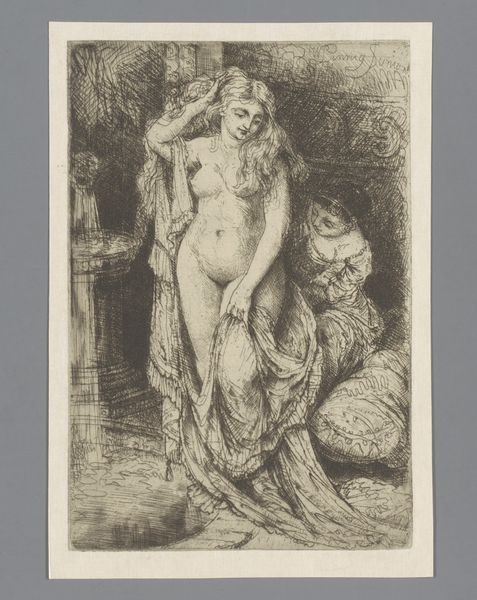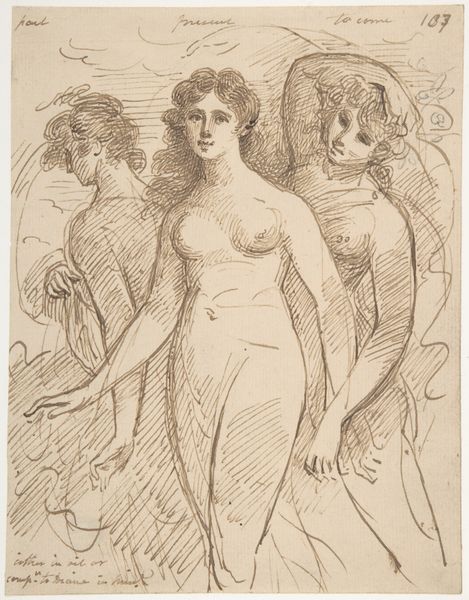
Copyright: Public domain
Curator: I find the disquieting mood rather fascinating in this lithograph by Henri de Toulouse-Lautrec from 1896 entitled, “Debauchery (second floor)”. It depicts two women amidst a wash of diluted color. What’s your immediate reaction? Editor: My first impression? Oh, honey, it feels like a Tuesday night gone sideways! All hazy edges and questionable decisions hanging in the air. It’s beautiful but also gives me the slight shivers. You know? That mix of beauty and trouble. Curator: Lautrec's print, which doubles as an advertisement for a poster catalog, reveals the prevalent male gaze inherent in the Parisian demimonde. How do you see that impacting the image's narrative? Editor: Ah, the gaze! Yes, it’s there, slathered all over this like cheap cologne. But even within that frame, I see these women claiming space, exhausted maybe, definitely rumpled, but undeniably there. Like, we’re not just objects, buddy. We’re…complicated. Curator: Precisely! Their weariness becomes a powerful statement about agency and resistance. The blurred lines, both literal and metaphorical, complicate our perception. What can you tell us about how he employs those lines? Editor: Honey, his lines are a hot mess, aren’t they? Scratchy, urgent. Like he was sketching a dream fading too fast. They feel…honest, almost painfully so. You get the impression of real flesh and bone. Flaws and all. None of that sanitized perfection. Curator: It’s as if we’re seeing a fleeting, intimate moment. Considering the social and political landscape of the era, how might viewers have interpreted this glimpse into such a space? Editor: I imagine some were titillated, others scandalized. Back then, just showing these "loose women" owning their space was rebellious, right? Goodness. Nowadays, looking at it, I'm torn. I love the raw humanity, the artist’s knack for raw emotion. But yes, that leering side-eye of history makes me itch. It’s layered. Curator: Exactly. Lautrec captures a tension inherent in looking, both observing and judging. What started as voyeurism transforms into social commentary, pushing viewers to question the dynamic between subject and spectator, and to confront the hypocrisy surrounding gender and morality. It's quite brilliant! Editor: I completely agree. It gets under your skin in the best—and maybe worst—ways. I feel like I've actually just shared a cab ride home with these ladies.
Comments
No comments
Be the first to comment and join the conversation on the ultimate creative platform.
